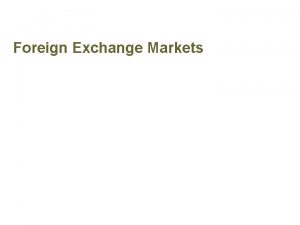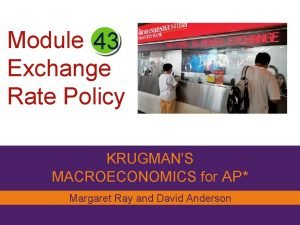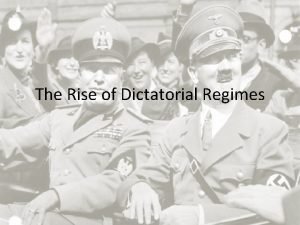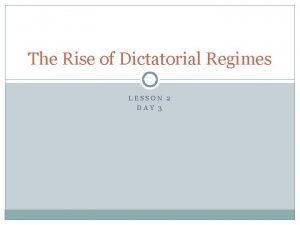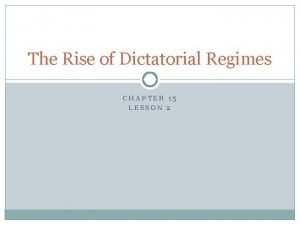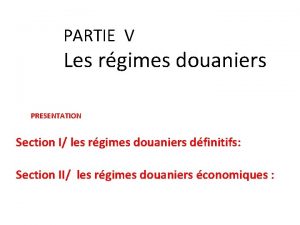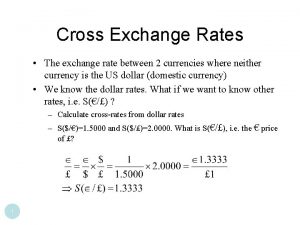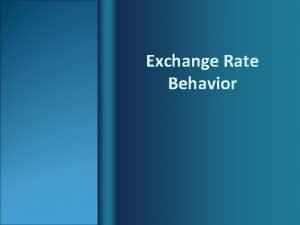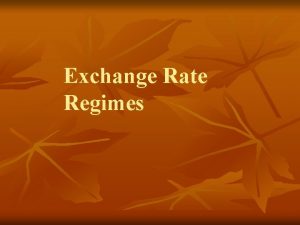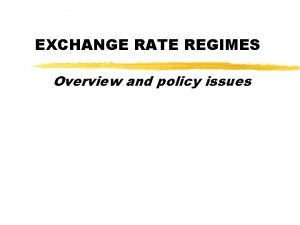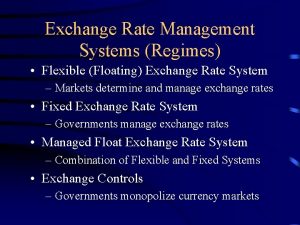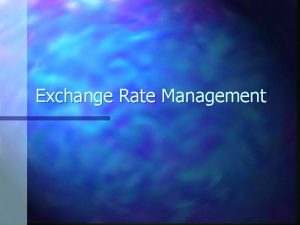Exchange Rate Policy and OpenEconomy Exchange Rate Regimes







- Slides: 7

Exchange Rate Policy and Open-Economy

Exchange Rate Regimes �Because governments set quantity of money, they have significant influence on exchange rates, which in turn is important to net exports �Options for policy: 1. Fixed exchange rate – govt keeps at/near a target 2. Floating exchange rate – govt lets XR follow market 3. Compromise policies that lie somewhere in between

Fixed Exchange Rate How governments keep exchange rates at a fixed rate When equilibrium value is below target: 1. Governments can buy up excess currency (exchange market intervention) with foreign exchange reserves 2. Governments can implement policy to raise interest rates 3. Governments can use regulation (foreign exchange controls) to limit amount to foreign investors who want to sell the currency Opposite options when equilibrium XR is above target

The XR Regime Dilemma Is fixed or floating better? �Benefits of fixed rate: 1. Certainty of future value of currency facilitates trade 2. Governments commit to control inflationary policies �Benefits of floating rate: 1. No need to keep large stores of foreign currency 2. Use of monetary policy to stabilize XR may conflict with other goals 3. Foreign exchange controls distort trade balance

3 Policy Issues of Open-Economy 1. Devaluation & Revaluation – � When countries move from fixed to floating, or change target XR � Devaluation is depreciation due to revision in fixed XR target; revaluation results in increase in value � Creates increases/decreases in current accounts � Can be used to eliminate shortages or surpluses in FOREX – or to increase/decrease AD

3 Policy Issues of Open-Economy 2. Monetary Policy & Floating XR Rates – � Monetary policy to lower interest rate will encourage investment spending & consumer spending, but also affects FOREX � Decreases capital flow into country & lowers demand for currency � Result is depreciation of currency & increase in AD

3 Policy Issues of Open-Economy 3. International Business Cycles – � Demand shocks from abroad can impact other countries due to reduction in demand for imports � Floating rate allows depreciation of currency when foreign demand falls � Increased net exports limit effect on AD
